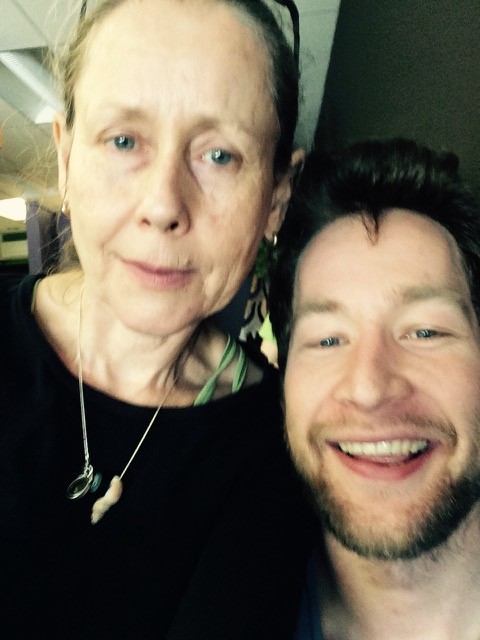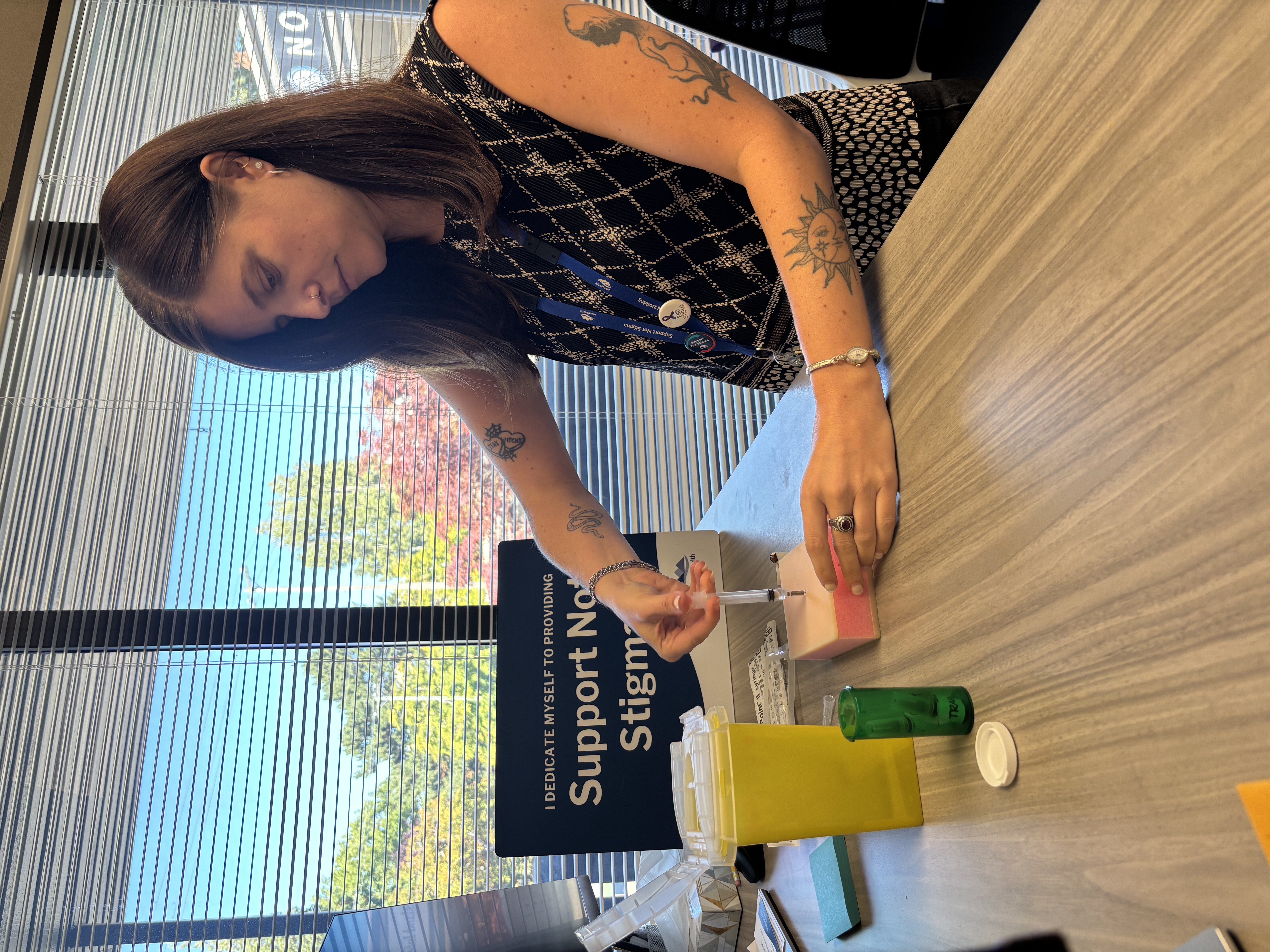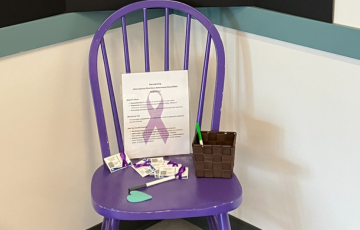Grief is a powerful and unifying force — one felt deeply by families, care providers, and communities across the region. On this International Overdose Awareness Day (IOAD), Island Health honours those who carry this grief by remembering the spouses, partners, children, parents, siblings, extended family members, friends, coworkers, and clients whose lives have been lost to toxic drug poisoning.
Nanaimo resident Gretchen Brown recalled finding out her only son died of a toxic drug overdose four years ago.
“When he died, I wanted to die,” said Gretchen Brown. “The grief is ongoing, and it’s unbearable.”
Born and raised in Nanaimo and on Protection Island, Hayden Cross played baseball, learned the bagpipes and was in French immersion. He started struggling with mental health challenges as a teen. He bought a condo and got married but his struggles resurfaced, leading to poverty and homelessness and exclusion by some family and friends. He was 31 years old he died.

For years Brown lived with anticipatory grief, bracing for the day her only son would be gone. Every phone call brought a wave of fear. When the police came to her door, she already knew. The stigma surrounding substance use deepened her pain.
“If you lose a child to cancer, you get sympathy from others,” says Brown. “If you lose a child to substance use, you’re often blamed, or they are.”
“I felt so alone. I didn't understand how widespread the situation was. A lot of families struggle with that, and the shame, stigma and discrimination that come along with that.”
Brown joined Moms Stop the Harm, a network of Canadian families impacted by substance use, and discovered she wasn’t alone.
“Shame is actually a killer,” Brown says. “People isolate, they think it’s their fault, that they’re somehow less than. And that’s not true — they just need support.”
In 2024 in the Island Health region, 446 people died from toxic drug poisoning. 74 per cent were male, 49 per cent occurred in private homes. Most were alone.
“Grief never goes away,” says Brown. “There is no closure. You learn to live with it.”
Brown found solace in several outlets and recommends these activities to others who are grieving; join a bereavement support group, like the Nanaimo Healing Hearts group she co-facilitates in Nanaimo; counselling; see what resources your local hospice has; talk to peer support; and learn about mental health and substance use.
Brown is not alone in carrying complex grief. Within the healthcare system, spiritual and emotional support providers see its impact every day.
“Compassion, judgement, and grief are all tied together,” reflects Oceanna Hall, a spiritual health practitioner at Saanich Peninsula Hospital. “On this International Overdose Awareness Day, be gentle with yourself, and show yourself compassion. If you’re holding any regret, please forgive yourself, because when people make a choice for themselves, there is no one to blame.”
She describes grief as something that reshapes the heart and who we are overall.
“I believe a permanent hole is made in our heart when we lose someone. We must grieve the loss of person who died but also who we are without that person in our lives.”
After nearly a decade of the crisis, she worries that cumulative and sustained grief may push people into numbness and urges people to talk about loved ones lost.
“There’s value in acknowledging when someone loses their life due to unregulated substances because there’s education in that truth,” Hall says. “Saying I’ve lost someone to substance use, removes the sense of rarity and reminds us that this is a collective issue.”
Within Island Health, staff across programs are also navigating this complex grief, while continuing to provide care.
“As community support workers and healthcare providers, we grieve alongside our community members, patients, clients and families,” says Jenna Patterson, regional harm reduction coordinator with Island Health, and registered social worker. “This experience of loss that was once uncommon is now a devastating part of our day-to-day work.”
“Grief is not linear,” says Jenna. “It is unpredictable. And it is felt across every area of healthcare.”
On this International Overdose Awareness Day, Island Health encourages everyone to reflect, remember, and reach out.

Anyone wishing to share a memory and/or photo about their loved one affected by the toxic drug crisis can participate in an online memory wall, available now through September 20. IOAD 2025 • Island Health
See this article for listings on in-person events before and on August 31.
Mental health, substance use, and grief supports are available. Residents in the Island Health region may call the Mental Health and Substance Use Service Link at 1-888-885-8824 to learn about supports that best meet their needs. If someone is experiencing a crisis, they can contact the Vancouver Island Crisis Line, available 24/7, at 1-888-494-3888. People experiencing grief may call the B.C. Bereavement Helpline at 604-738-9950 or 1-877-779-2223 for compassionate listening or support by emailing contact@bcbh.ca.

More resources
- Get health tools (action sets) to manage grief Grief and Grieving | HealthLink BC
Find a local support group with Healing Hearts (Moms Stop the Harm) Our Grief Support Groups | Healing Hearts Bereavement Support - Canada - Access mental health and substance use services, visit Mental Health & Substance Use Services or HelpStartsHere.gov.bc.ca.
